An Interview with Tessa Hulls
"I had to unlearn how I worked as a painter (extremely, extremely detailed), and how I worked as an essayist, to find my way to the fluidity I wanted in how I draw comics."
I (Amaris) first met Tessa Hulls a long time ago, when couchsurfing was popular and you could stay at strangers’ houses or meet new people in a city you were visiting and learn about something off the beaten path. I stayed with Tessa and her roommates a couple times in Seattle, and I always loved to see what artistic adventure she was up to. So, when I learned she was working on a graphic memoir, I was very excited and eager to review it. Nora and I will share more of our thoughts about her new memoir, Feeding Ghosts, in our next post, but it’s a story about how history shapes family, and it is well-researched, beautifully drawn, and the story is woven in a complicated and delicate way. In the meantime, we were able to ask Tessa a few questions about making comics.
Describe your comics journey—how did you get into making comics?
In 2011, I found myself at the bottom of the world working as a cook at a science research station in Antarctica. We worked six days a week, ten hours a day, and I spent my time outside of work voraciously exploring both the sociological and physical landscapes I found myself in. There wasn’t a huge amount of room for creative work. I lived in a room with five other people, and because some of them worked the night shift, the lights had to be kept off for sleep schedules. So I made a little light-tight art studio under my bed, and when I found myself needing a quick way to capture the feeling of my environment—I started drawing comics.
I’ve always been extremely multidisciplinary and my main creative background was as a painter. But Feeding Ghosts required me to learn how to become a graphic novelist, and I had to essentially become both a journalist and historian along the way in order to do justice to the scope of the story I was working with.
From the jump, I knew that Feeding Ghosts had to be a graphic novel. If I’d just written it, the density of the history would have been overwhelming. So I taught myself the form for this book.
Then in the summer of 2020, I found myself accidentally going viral as an embedded comics journalist reporting from Seattle’s Capitol Hill Organized Protest (CHOP) during the uprisings for racial justice after George Floyd’s murder. I meant to go in for a few days to try to lend some context-based comics reporting because I used to live in that neighborhood and had strong community ties there—and then it turned out there was far more of a need for that kind of information than I’d anticipated. So I ended up sleeping on the floor of an arts nonprofit’s conference room and staying on site for three weeks to report what was happening up until the final police clearing.
How did you develop your comics voice?
Before I became a compulsive genre hopper, I was a painter, and I’d always used writing to clarify and understand my own ideas. So I had some elements of the comics form in place when I started to teach myself in my thirties. But I had to unlearn how I worked as a painter (extremely, extremely detailed), and how I worked as an essayist, to find my way to the fluidity I wanted in how I draw comics. There was definitely an awkward phase as I figured it out, which was honestly difficult for me because it’s hard to go from a medium you’re deeply fluent in, to make all the mistakes of someone learning a new language.
For about a year, I went to the Seattle Public Library every week and checked out a stack of random graphic novels and took them home to study. I’d draw in the style of each of those graphic novelists to understand the techniques and approaches each creator was using, and do little sketchbook critiques of what worked and what did it. So I think I had an unusually methodical entry into the form because it wasn’t something I was raised on.
What are some of the joys and challenges of making nonfiction comics?
For me, making nonfiction comics has the greatest strength and greatest weakness: concision. I’m essentially a trash compactor, taking incredibly complex ideas that often involve palimpsests of centuries of history, and showing the through line in accessible, easily digestible ways. But it’s sometimes agonizing having to find a way to reduce such enormous swathes of information and context to such a limited amount of space. And if I’ve done my job, my viewer will never see that I’ve effectively pulled off a magic trick because it will seem easy.
To me, nonfiction comics are like playing the world’s most brutal game of Jenga, where there can be absolutely no extraneous fat. But I think that’s mostly the weird niche of the field I seem to have found myself working in haha….
Are you working on something now?
Honestly, I’m recovering from burnout. Making Feeding Ghosts took absolutely everything I had and then some, and it’s coming out literally about a decade after I first started it. So I’m learning how to reconnect with a sense of joy, curiosity, and play in my creative practice. I’m about to be out on book tour for the foreseeable future and am hoping that the part of this where I finally go out in the world instead of just sitting alone in a room drawing my crying mother while in the darkest trenches of a global pandemic—lol I am READY for human interaction!
Tessa Hulls is an artist, a writer, and an adventurer. Her essays have appeared in The Washington Post, Atlas Obscura, and Adventure Journal, and her comics have been published in The Rumpus, City Arts, and Spark. She has received grants from the Seattle Office of Arts and Culture, 4Culture, and the McMillen Foundation, and she is a recipient of the Washington Artist Trust Arts Innovator Award. Feeding Ghosts is her first book.
FEEDING GHOSTS comes out March 5, 2024. It's available for pre-order HERE, and here are starred reviews in Kirkus Reviews, Publishers Weekly, and Booklist.
WEBSITE: www.tessahulls.com
INSTAGRAM:
Stay tuned for our book club on Feeding Ghosts later this month!

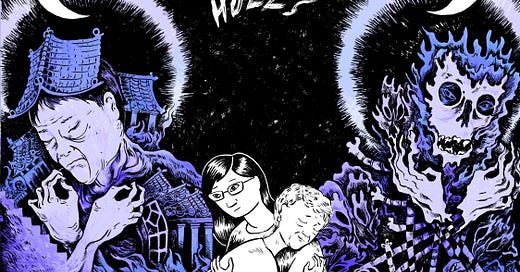




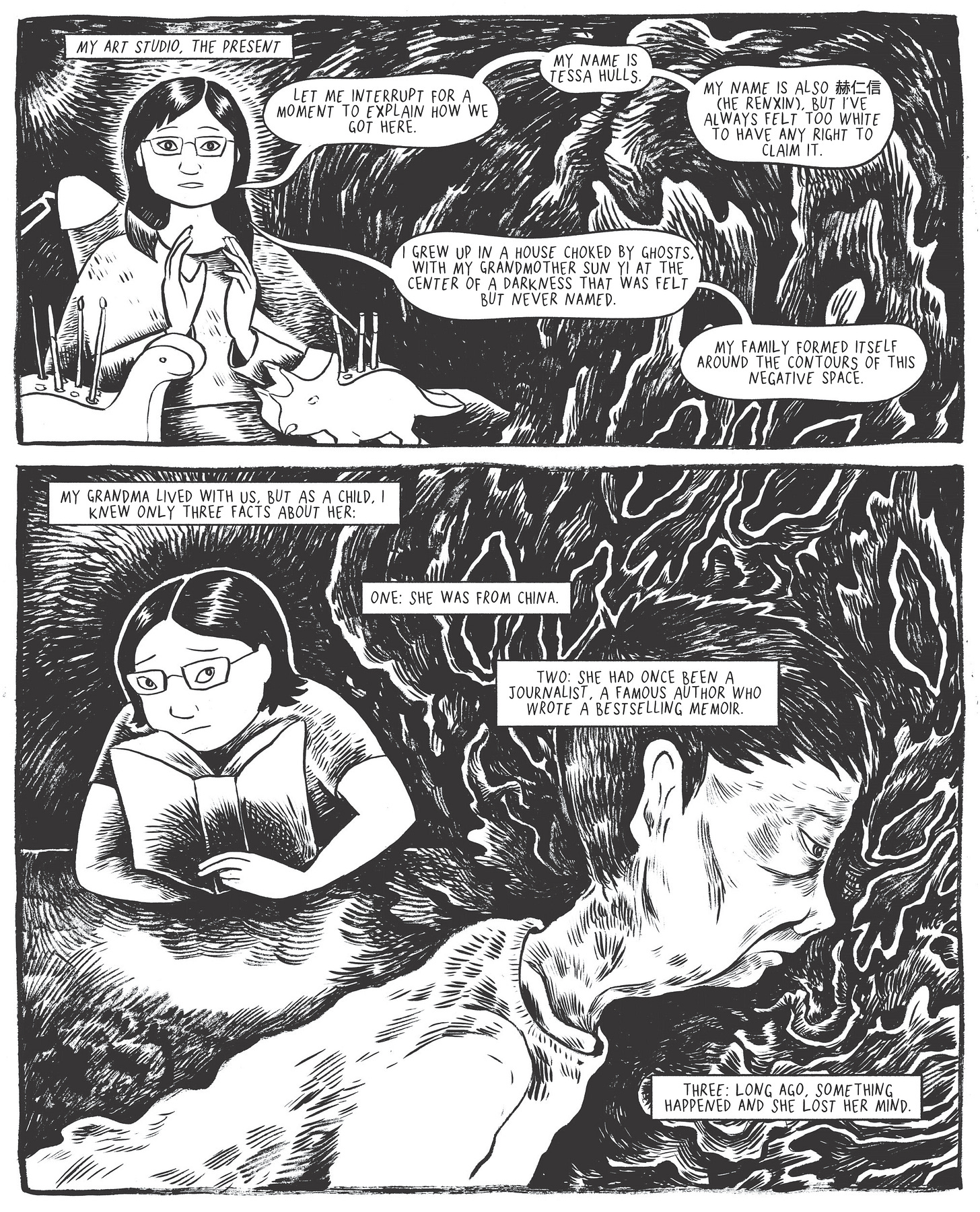
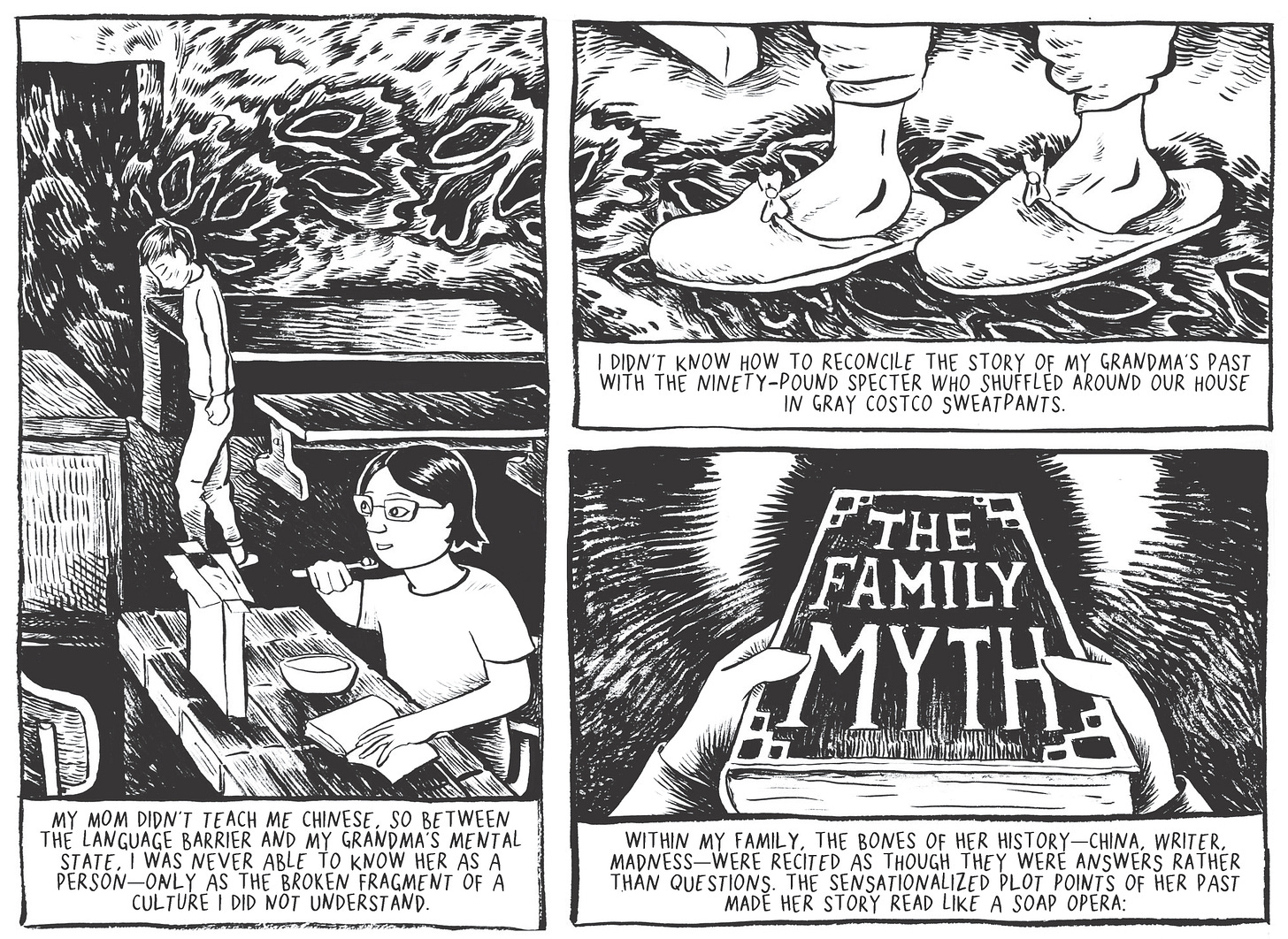
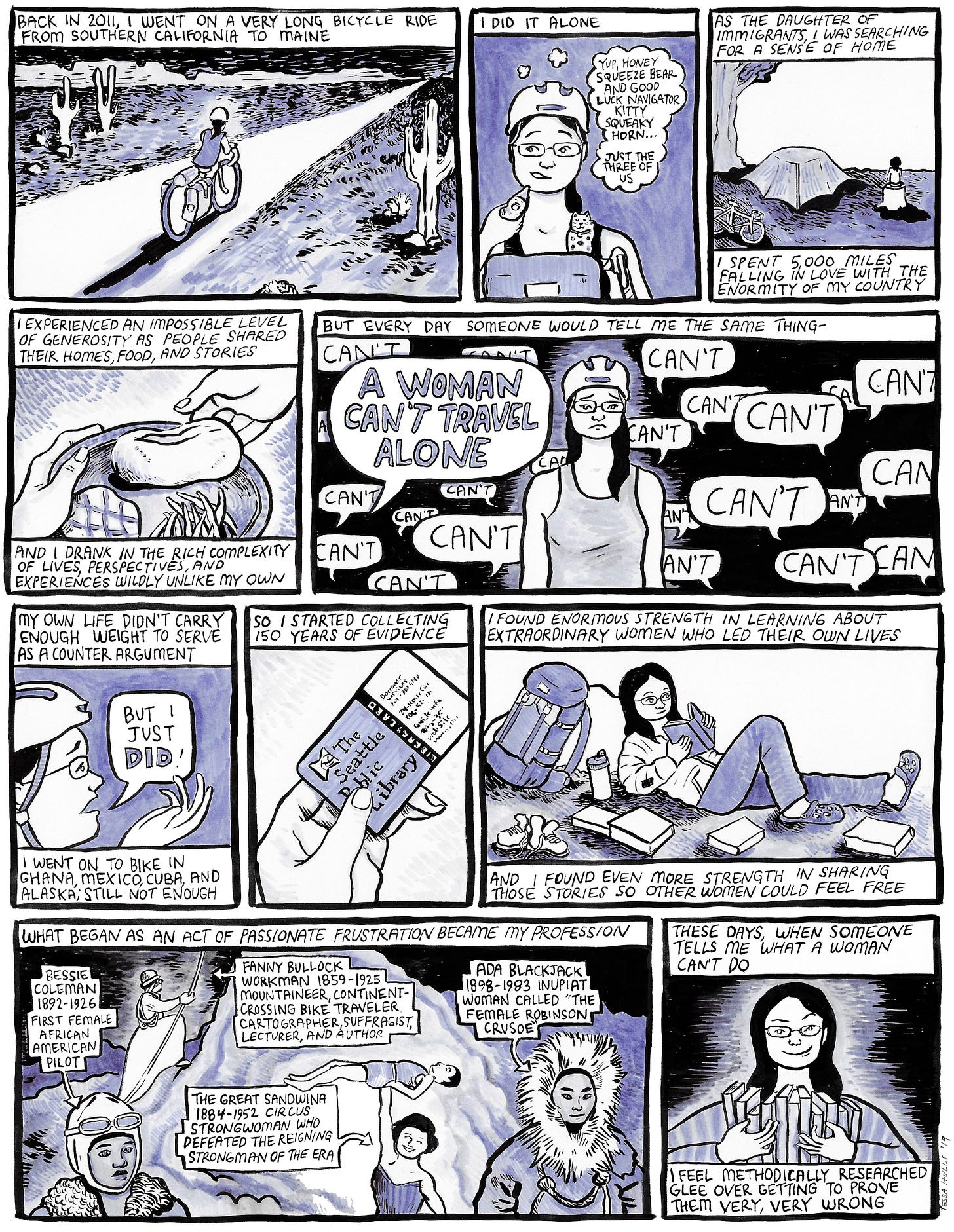
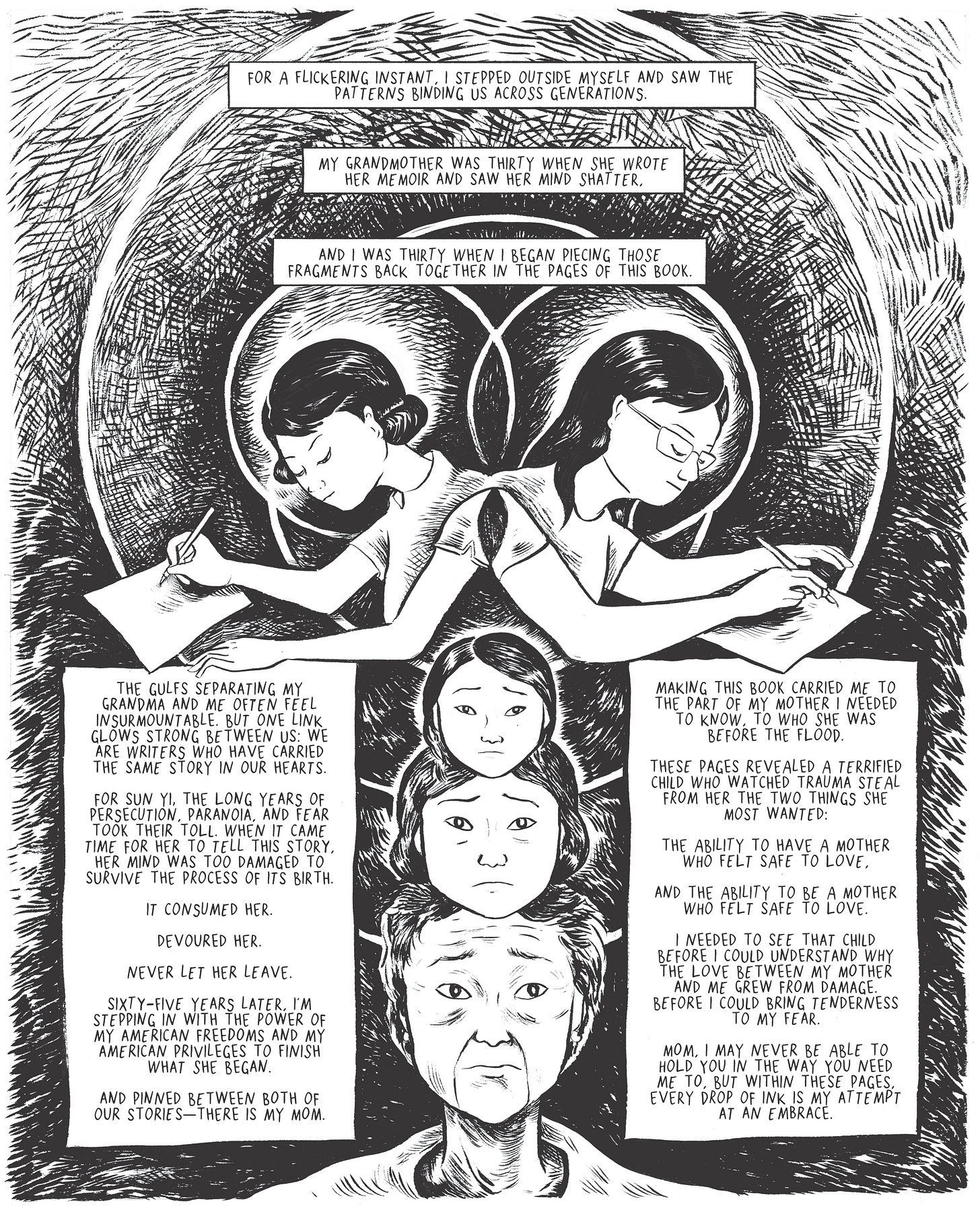
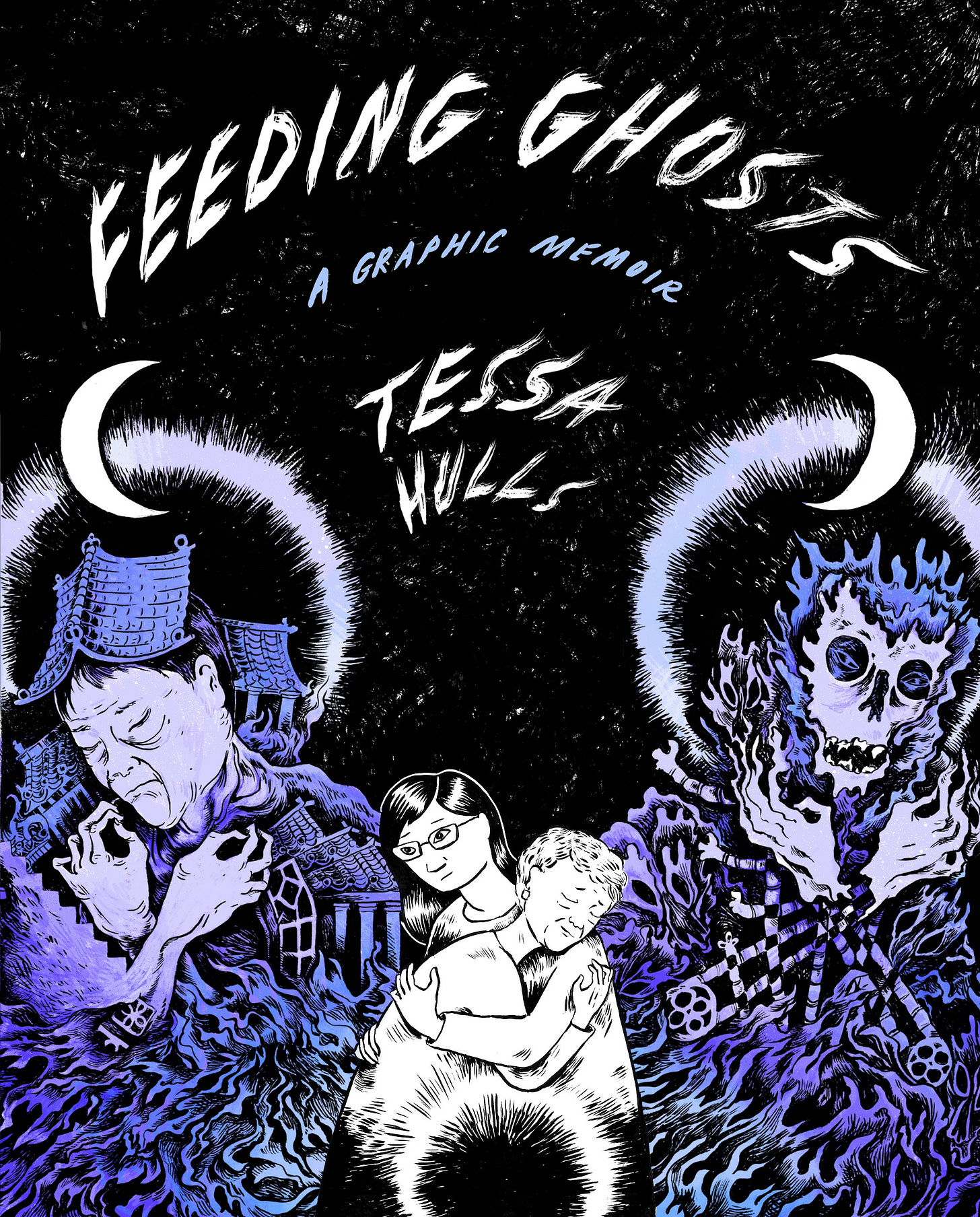
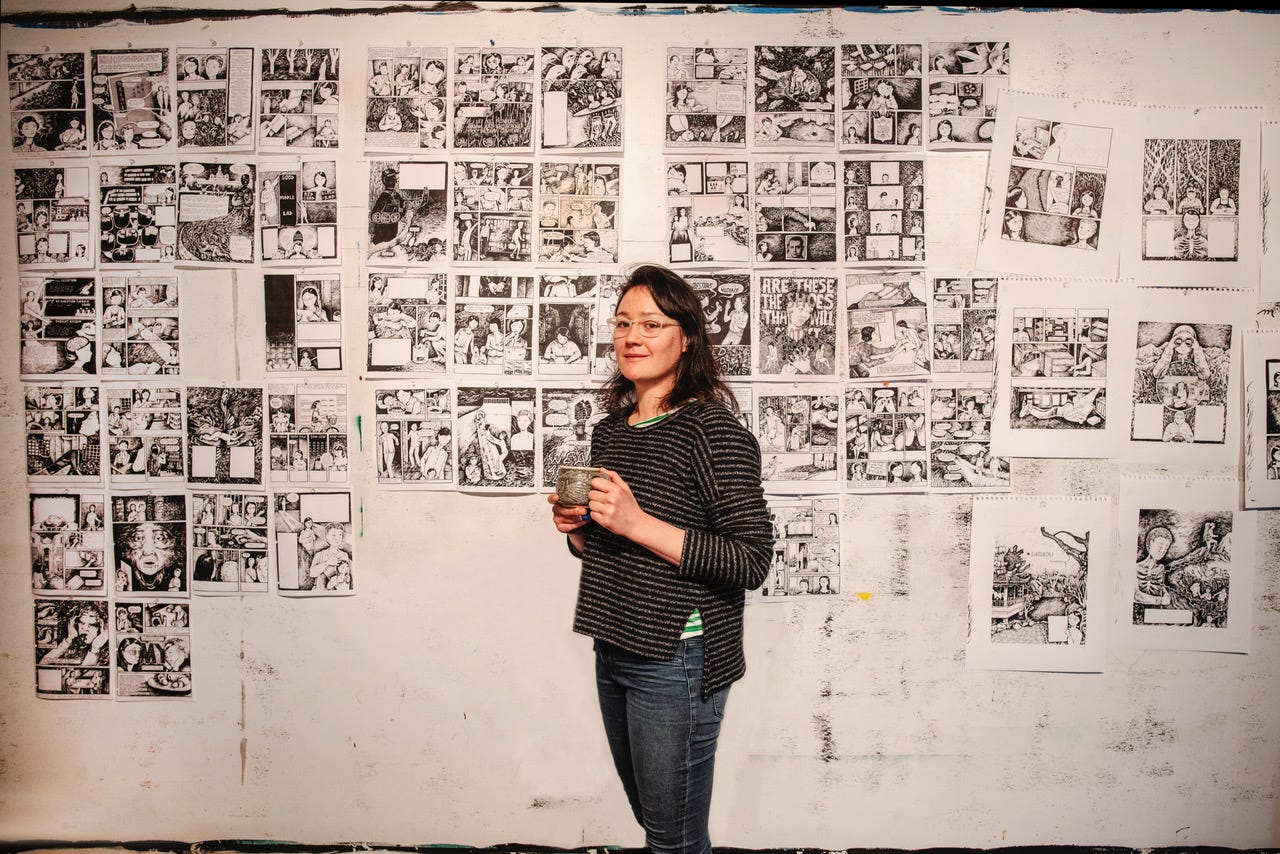
Oh wow. I can’t wait to read this. The excerpts were so compelling! ✨✨✨
This sounds fascinating. I’ve found that I am reading more graphic memoirs these days. :)